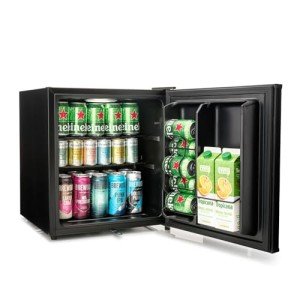The Role and Evolution of Commercial Coolers in the Modern Marketplace
In the busy landscape of modern commerce, the role of commercial coolers can not be overemphasized. These important pieces of equipment are the backbone of various markets, from grocery stores and benefit stores to restaurants and health care facilities. This article looks into the significance of commercial coolers, their types, advancements, and the effect they have on company operations.
Intro to Commercial Coolers
Commercial coolers, likewise called commercial refrigerators, are created to keep a consistent and regulated temperature level environment for the storage of perishable goods. Unlike home refrigerators, commercial coolers are built to stand up to heavy usage and are geared up with features that make sure reliability and effectiveness in high-demand settings. Built-In Drink Fridges are vital for maintaining the quality and security of food, beverages, and other temperature-sensitive items.
Kinds Of Commercial Coolers
Cooled Display Cases
- Vertical Coolers: Commonly found in grocery stores and benefit stores, these systems enable clients to view and select items quickly.
- Horizontal Coolers: Often used for showing drinks and small items, these units can be either open or with glass doors.
Walk-in Coolers
- Walk-in Freezers: Large, room-sized units designed for bulk storage of frozen products.
- Walk-in Coolers: Similar to walk-in freezers however keep a greater temperature, appropriate for storing dairy, produce, and other perishables.
Undercounter Coolers
- Bar Coolers: Compact systems created to fit under bar counters, perfect for storing drinks and mixers.
- Preparation Coolers: Used in kitchen areas for saving ingredients and ready foods.
Bottle Coolers
- Single-Door Coolers: Ideal for small spaces, these units are typically utilized in workplaces and small retail settings.
- Multi-Door Coolers: Larger units with multiple compartments, suitable for high-volume sales environments.
Reach-in Coolers
- Single-Door Reach-ins: Compact and effective, these systems are ideal for small organizations and restaurants.
- Double-Door Reach-ins: Offer more storage area and are suitable for medium-sized operations.
Developments in Commercial Coolers
The innovation behind commercial coolers has advanced significantly throughout the years, causing more efficient and sustainable alternatives. Some noteworthy improvements include:
- Energy Efficiency: Modern coolers are designed to consume less energy, minimizing operational costs and environmental effect. Features like LED lighting, high-efficiency compressors, and advanced insulation contribute to this.
- Smart Technology: Many commercial coolers now include smart functions, such as remote monitoring, temperature level informs, and automated defrost cycles. These technologies improve functional effectiveness and product security.
- Eco-Friendly Refrigerants: The use of ecologically friendly refrigerants, such as R-290 (gas) and R-600a (isobutane), is ending up being more widespread, reducing the carbon footprint of commercial coolers.
- Customization: Manufacturers are offering more personalized choices, allowing services to tailor their coolers to specific requirements, such as size, style, and functions.
Effect On Business Operations
Commercial coolers play an essential function in a number of elements of company operations:
- Product Preservation: By maintaining ideal temperature conditions, coolers make sure that products stay fresh and safe for usage, minimizing waste and enhancing client fulfillment.
- Operational Efficiency: Efficient cooling systems minimize downtime and maintenance expenses, allowing companies to concentrate on other vital operations.
- Customer Experience: Well-maintained and visually pleasing coolers can enhance the shopping experience, motivating customers to make purchases.
- Regulative Compliance: Commercial coolers help businesses meet health and wellness guidelines, ensuring compliance and avoiding charges.
Frequently asked questions
Q: What is the distinction in between a commercial cooler and a family fridge?
- A: Commercial coolers are designed for heavy usage and are developed with more robust products and advanced functions to make sure dependability and performance in high-demand settings. Family refrigerators, on the other hand, are designed for personal use and are not equipped to manage the exact same level of use or storage capacity.
Q: How can I ensure my commercial cooler is energy efficient?
- A: To make sure energy effectiveness, select a cooler with an Energy Star ranking, usage LED lighting, preserve regular cleansing and maintenance, and think about wise features like remote monitoring and automated defrost cycles.
Q: What are the advantages of using environment-friendly refrigerants in commercial coolers?
- A: Eco-friendly refrigerants, such as R-290 and R-600a, have a lower international warming capacity (GWP) and ozone exhaustion potential (ODP) compared to standard refrigerants. This minimizes the ecological impact of commercial coolers and helps companies meet sustainability goals.
Q: How frequently should I clean and keep my commercial cooler?
- A: Regular cleaning and maintenance are vital for the optimal efficiency of commercial coolers. It is advised to clean up the cooler at least as soon as a month and carry out a comprehensive maintenance check every six months. This includes checking the seals, cleaning the condenser coils, and guaranteeing the temperature level settings are precise.
Commercial coolers are essential in the modern marketplace, providing essential services that guarantee the quality and safety of perishable products. With developments in innovation and a growing focus on sustainability, these units are ending up being more effective and ecologically friendly. By comprehending the different kinds of commercial coolers and their influence on company operations, owners and supervisors can make informed decisions that benefit both their operations and the environment.

